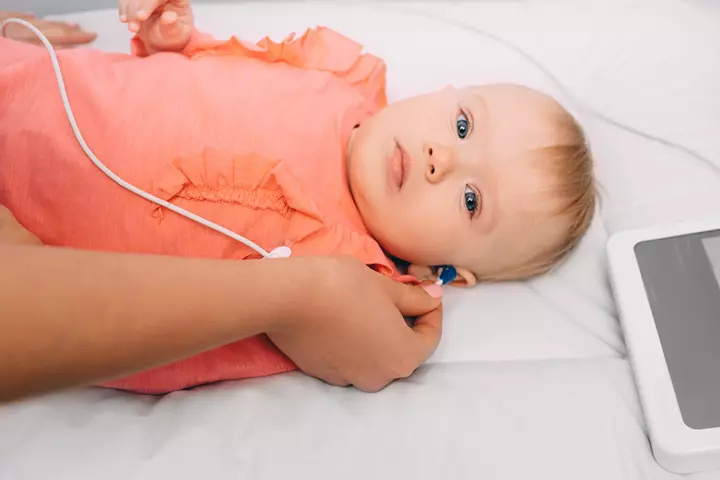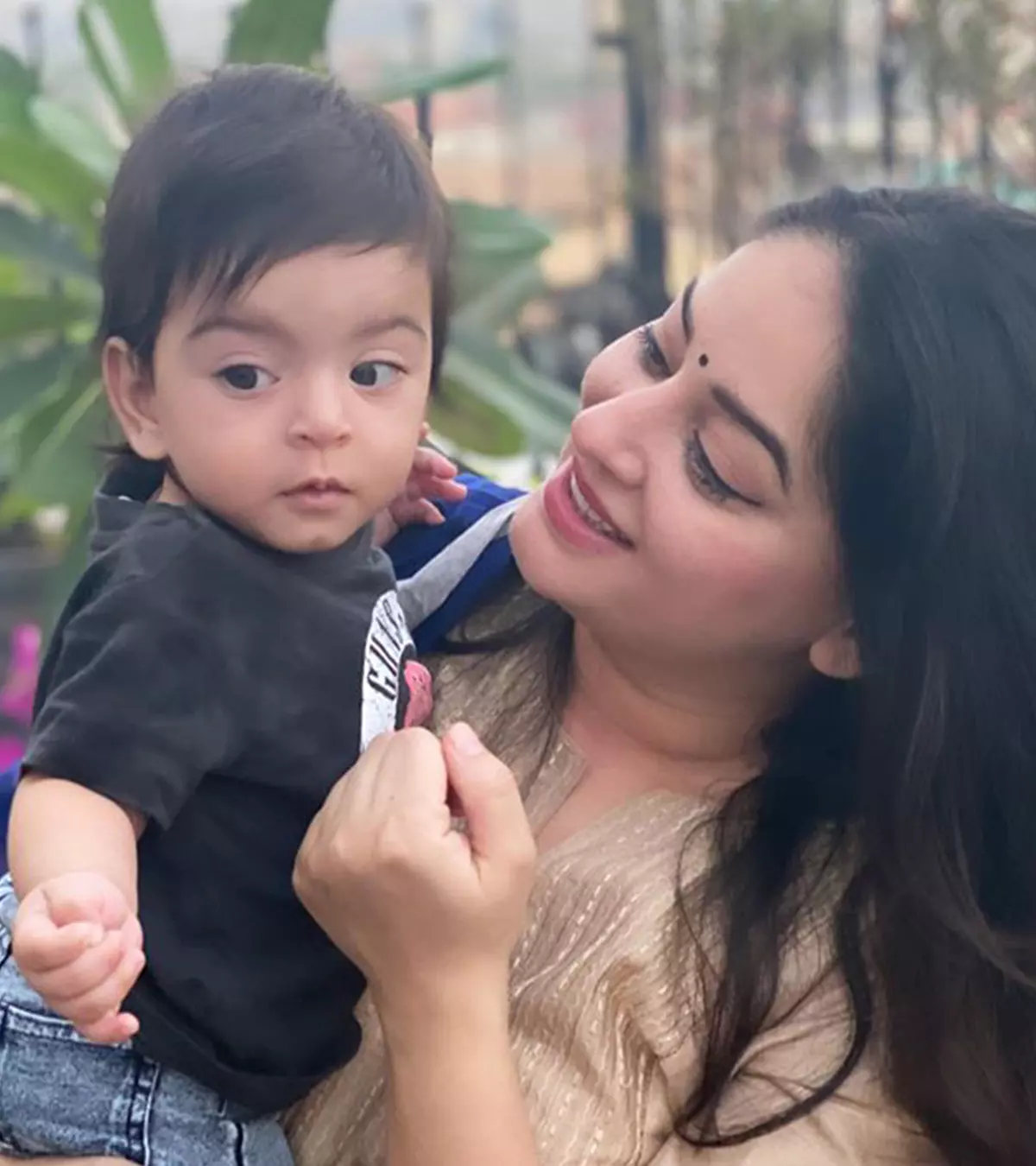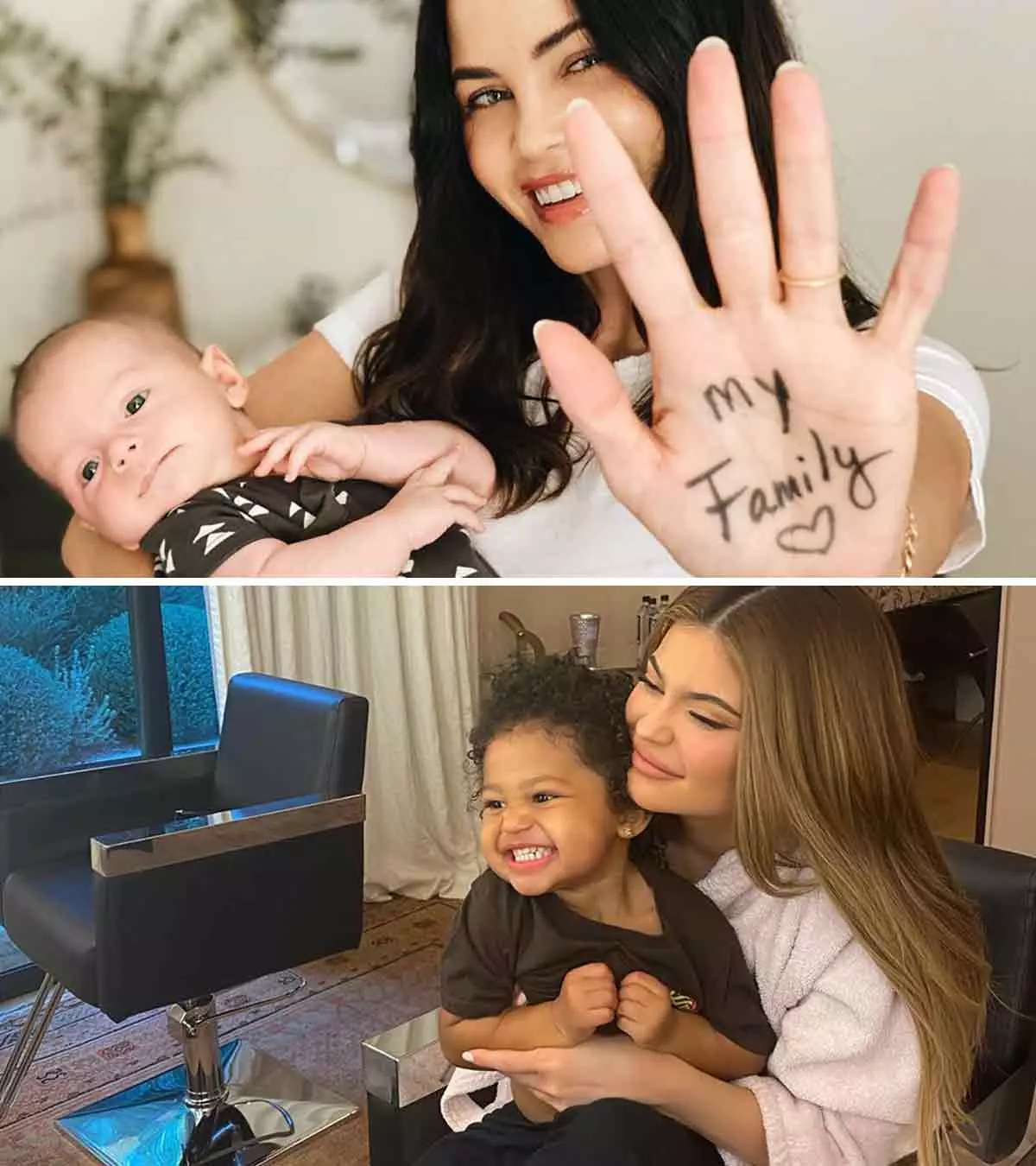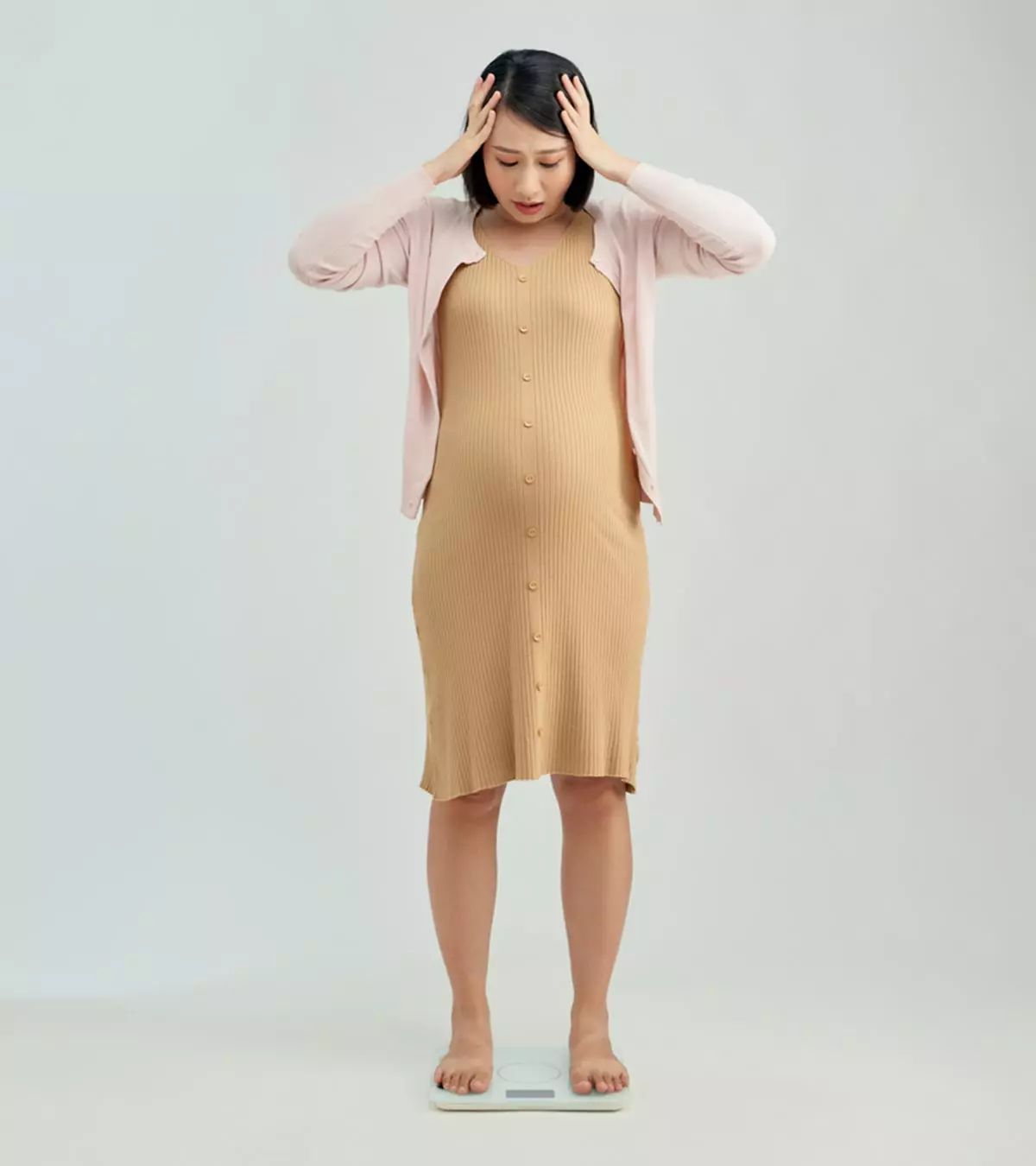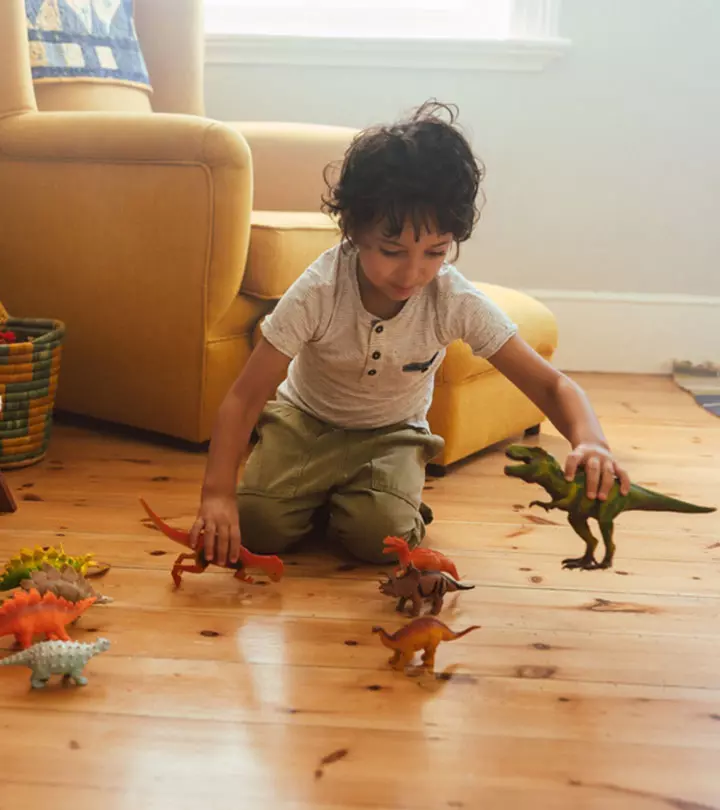

Image: Shutterstock
Pregnant women sing lullabies and start talking to their babies when they are in their womb. Many even read stories and play music in the hopes of boosting their little one’s brain development. Parents talk to their babies so that the baby is familiar with their voice by the time they are born. But will your baby really be able to hear your voice inside the womb? When does their sense of sound develop? And what causes hearing loss in babies? We’ve got the answers for you.
How Baby’s Hearing Develops Inside The Womb
Image: Shutterstock
Here’s a timeline of all that happens in your womb that will help in developing your baby’s sense of sound (1).
The second month: When a woman enters into her 4th or 5th week of pregnancy, the embryo slowly starts developing. It is during this time that the baby’s brain, nose, face, ears, and eyes start forming. The embryo cells start arranging themselves to form the baby’s facial features.
The third month: During the 9th week, indentions starts forming where the baby’s ears are going to grow. These indentions appear on both sides of the baby’s neck, on the inside and outside where the ears will soon develop. They then move upwards to what you will soon recognize as baby’s ears.
The fourth month: It is during the 18th week that the baby starts hearing sounds. This is the most exciting period for parents when they start talking to their babies from the womb.
The fifth month: By the 24th week, the baby will no longer be sensitive to sounds. And in the consecutive weeks, they will start responding to the noises and sounds they can hear from the womb. The baby will be able to hear the limited sounds that won’t be recognized by you. This includes the sound that your baby makes such as the flow of blood through the umbilical cord, the heartbeats, the movement of air in and out of the mom-to-be’s lungs, and the growing belly.
Can Babies Really Recognize Your Voice From Inside The Womb?
Image: Shutterstock
Your baby’s sense of hearing develops as they grow. They start paying attention to more sounds. During the 25th or 26th week of pregnancy, babies are known to respond to voices and sounds. But the sounds coming from outside the womb will be muted by about 50% as per the recordings that were taken from the uterus. The uterus where your baby lies is surrounded by amniotic fluid. This amniotic sac is wrapped by your body’s layers, restricting open air inside the womb. And since there is no open-air in the uterus, the noises that your baby hears will be muffled (2).
During the third trimester, the sound that your baby will be able to hear most significantly will be your voice. Your baby will be able to recognize your sound and also respond to it with a higher heart rate. This indicates that the baby will be more alert when you are speaking to them.
Hearing Loss In Babies
Image: Shutterstock
Hearing loss affects about 1 to 3 babies out of 1000. There are several factors that could contribute to hearing loss in babies such as premature birth, family history, birth complications, exposure to loud noises and sounds, etc. It’s important to note that about half of the time, hearing loss occurs without any known cause (3).
As a parent, it is best to know what to expect as your baby grows. Right from birth to toddlerhood, knowing what’s normal and what’s not will help you recognize if your baby is having a hearing defect. If you are concerned that your baby is not responding to the voices or sounds around them or doesn’t recognize your voice, don’t delay in consulting your doctor.
Community Experiences
Join the conversation and become a part of our nurturing community! Share your stories, experiences, and insights to connect with fellow parents.



